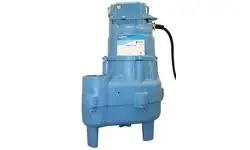English
- Afrikaans
- Albanian
- Amharic
- Arabic
- Armenian
- Azerbaijani
- Basque
- Belarusian
- Bengali
- Bosnian
- Bulgarian
- Catalan
- Cebuano
- Corsican
- Croatian
- Czech
- Danish
- Dutch
- English
- Esperanto
- Estonian
- Finnish
- French
- Frisian
- Galician
- Georgian
- German
- Greek
- Gujarati
- Haitian Creole
- hausa
- hawaiian
- Hebrew
- Hindi
- Miao
- Hungarian
- Icelandic
- igbo
- Indonesian
- irish
- Italian
- Japanese
- Javanese
- Kannada
- kazakh
- Khmer
- Rwandese
- Korean
- Kurdish
- Kyrgyz
- Lao
- Latin
- Latvian
- Lithuanian
- Luxembourgish
- Macedonian
- Malgashi
- Malay
- Malayalam
- Maltese
- Maori
- Marathi
- Mongolian
- Myanmar
- Nepali
- Norwegian
- Norwegian
- Occitan
- Pashto
- Persian
- Polish
- Portuguese
- Punjabi
- Romanian
- Russian
- Samoan
- Scottish Gaelic
- Serbian
- Sesotho
- Shona
- Sindhi
- Sinhala
- Slovak
- Slovenian
- Somali
- Spanish
- Sundanese
- Swahili
- Swedish
- Tagalog
- Tajik
- Tamil
- Tatar
- Telugu
- Thai
- Turkish
- Turkmen
- Ukrainian
- Urdu
- Uighur
- Uzbek
- Vietnamese
- Welsh
- Bantu
- Yiddish
- Yoruba
- Zulu
Telephone: +86 13120555503
Email: frank@cypump.com
Aug . 28, 2024 20:26 Back to list
industrial slurry pump
Understanding Industrial Slurry Pumps A Key Component in Various Industries
Industrial slurry pumps are vital machines used extensively in sectors such as mining, construction, and wastewater management. These pumps are designed to transport mixtures of liquid and solid materials, known as slurries, effectively handling abrasive and corrosive materials that standard pumps cannot manage. Their importance cannot be overstated, as they play a critical role in ensuring operational efficiency and safety in various industrial processes.
What is a Slurry?
A slurry is a mixture of solids suspended in a liquid, often water. The solids can range from fine particles of coal or minerals to larger chunks of gravel or sand, depending on the specific application. Handling such mixtures poses unique challenges, as the viscosity and density of slurries can significantly affect the performance of the pumping system.
Design and Construction
Industrial slurry pumps are specifically designed to tackle these challenges. They usually feature robust construction with materials that can withstand wear and corrosion. Common materials include high-chrome alloys and rubber linings, which provide longer service life compared to standard pump materials.
The design of slurry pumps typically includes a wide inlet to accommodate large particles while preventing blockages. Impellers are often recessed or designed to reduce shear, ensuring that the solid particles are moved without breaking down into finer materials. This is crucial, especially in mining applications, where preserving the integrity of the ore is essential.
Types of Slurry Pumps
industrial slurry pump

There are various types of industrial slurry pumps, each tailored for specific applications. Centrifugal slurry pumps are most common, using rotational energy to move the slurry. They are suitable for high flow rates and lower viscosity slurries. On the other hand, positive displacement pumps are better suited for high-viscosity slurries and applications requiring precise flow control.
Submersible slurry pumps are another category, designed to operate while submerged in the fluid being pumped. These pumps provide the advantage of reducing the need for suction lines and are often used in mining and construction sites for dewatering purposes.
Applications of Slurry Pumps
Industrial slurry pumps find numerous applications across different sectors. In mining, they are used to transport mineral slurries from processing plants to refining facilities. In construction, they handle the removal of slurry generated from trenching or pile driving. Additionally, wastewater treatment facilities employ slurry pumps for handling sludge and other solid waste materials, ensuring efficient waste management.
Maintenance and Safety
Proper maintenance of slurry pumps is crucial for their longevity and efficiency. Regular inspection for wear and tear, as well as monitoring for blockages, can prevent unexpected breakdowns and costly downtime. Safety is also a concern; operators must ensure that proper procedures are followed to handle the abrasive materials safely and reduce the risk of accidents.
Conclusion
In summary, industrial slurry pumps are indispensable tools across various industries, designed to handle the complexities of transporting slurries effectively. Their robust construction, specialized designs, and various types cater to the diverse needs of industries dealing with solids in liquids. By investing in high-quality slurry pumps and adhering to proper maintenance practices, businesses can enhance their operational efficiency and safety, ultimately contributing to a more productive industrial environment.
-
ISG Series Vertical Pipeline Pump - Chi Yuan Pumps | Advanced Engineering&Industrial Efficiency
NewsJul.30,2025
-
ISG Series Pipeline Pump - Chi Yuan Pumps | High Efficiency, Energy Saving
NewsJul.30,2025
-
ISG Series Vertical Pipeline Pump-Chi Yuan Pumps|High Efficiency&Reliable Performance
NewsJul.29,2025
-
ISG Series Vertical Pipeline Pump|High Efficiency&Low Noise
NewsJul.29,2025
-
ISG Series Vertical Pipeline Pump - Chi Yuan Pumps Co., LTD.|High Efficiency, Energy Conservation, Low Noise
NewsJul.29,2025
-
ISG Series Vertical Pipeline Pump-Chi Yuan Pumps Co., LTD.|High Efficiency&Energy-Saving
NewsJul.29,2025










